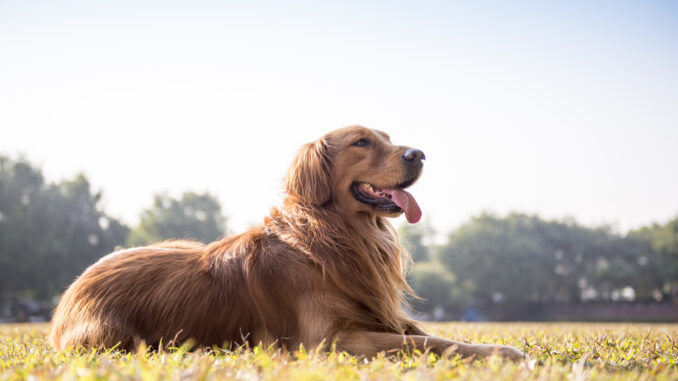
In the still of the night, you hear it. Your dog’s stomach is gurgling and making funny sounds. Should you be concerned?
The reality is that there are several reasons for dog stomach gurgling, and many of the causes aren’t something you should panic about. However, sometimes, the sounds can point to a problem. So you need to understand what the noises mean and when you should be concerned or call your vet.
Why is my dog’s stomach making noises?
The gurgling sound your dog’s stomach makes is called borborygmi, and it’s often part of the digestive process. As fluid and gas pass through the gastrointestinal tract, they create rumbling sounds. It’s completely normal in many cases, but when the growling sounds like a freight train, it might mean your pooch has an upset stomach.
Why is my dog’s stomach gurgling, but he is still acting and eating normally?
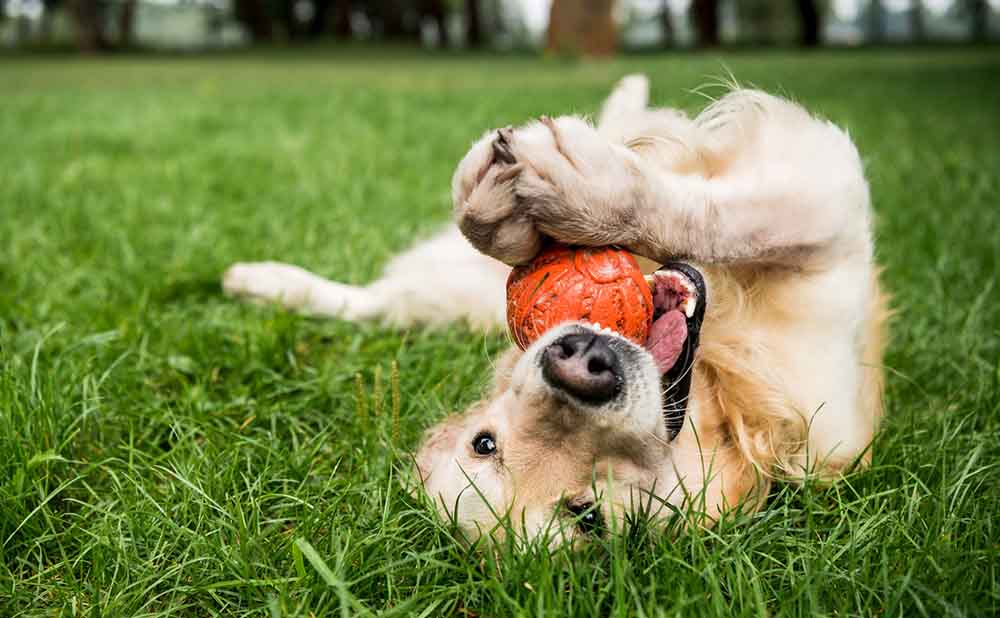
Dogs can have a gurgling stomach and continue to act and eat normally for several reasons. Frequently, the presence of noticeable stomach sounds is a result of increased gas in the stomach or intestines. This can be caused by digesting certain types of foods like carbohydrates, or by your dog swallowing air.
If your dog’s stomach sounds like it’s doing the mamba, but he’s acting normal and still eating, don’t panic. The sounds may resolve on their own. If the sounds continue for a few days, check with your vet.
Is dog stomach gurgling normal?
Stomach gurgles are a normal part of digestion. When food enters your dog’s stomach, it triggers a digestive process. Once the materials are broken down into a digested slurry, the muscles move the liquid product and gas produced during digestion into the intestines. As the slurry and gas move through the system, it creates a gurgling sound.
Most common causes of stomach gurgling in dogs
There are various reasons for stomach gurgling in dogs. Most of them are relatively non-threatening.
Your dog is hungry
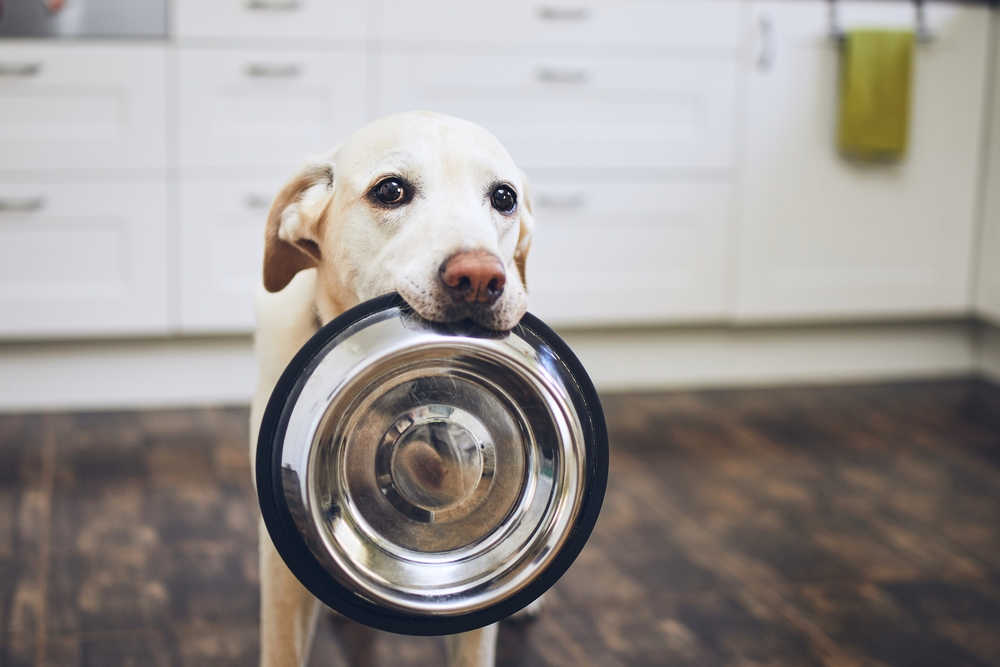
After the stomach empties its contents into the intestines, there’s no solid material to absorb the sounds of digestive fluids and gas moving around. As a result, the gurgling sounds can grow louder.
Your dog has extra gas
Extra air or gas in the digestive tract can cause normal stomach sounds to get louder. Higher carbohydrate foods or snacks can result in more gas as they’re digested. Additionally, some fast eaters tend to swallow air when they wolf down dinner.
Your dog has an upset stomach
When dogs snarf table scraps or something they shouldn’t eat, or if they have a new food or treat, they may have mild digestive upset. In response to the new materials, the gastrointestinal tract may increase muscle contractions to remove the food faster. This pushes digestive fluids through the intestine more quickly and can cause increased gurgling sounds. Dogs with upset stomachs may temporarily stop eating and act lethargic or uncomfortable.
Your dog is stressed out
Because they can’t verbally tell you, dogs often demonstrate their emotions through bodily functions. Extra tummy rumblings may be a sign that your pooch is feeling stressed about something. Sometimes dogs that have anxiety will also hide or become more clingy.
Your dog has worms
Some intestinal parasites, including roundworms, hookworms, and whipworms can cause increased gut sounds. You may not notice other signs depending on the parasite load. Otherwise, your pooch may have a voracious appetite but be losing weight.
If your dog is showing other signs of illness such as vomiting, diarrhea, or anorexia, read these articles for more information:
- Dog Stomach Gurgling & Dog Stopped Eating
- Dog Stomach Gurgling & Dog Eating Grass
- Dog Stomach Gurgling with Bad Gas or Upset Stomach
- Dog Stomach Gurgling & Vomiting or Diarrhea
Let’s review now how you can help your dog.
5 steps you can take at home to help your dog now with stomach gurgling
Some things you can try to help reduce gurgling sounds in your dog include:
- Feed smaller, more frequent meals by dividing the daily allotment into 3 or 4 portions.
- Use a slow-feed bowl to discourage wolfing down food.
- Give probiotic supplements to aid digestion and soothe the gut
- Follow a daily feeding routine to minimize stress.
- Provide your pooch with daily exercise to encourage normal smooth muscle contractions.
When should you call your veterinarian?
Normal digestive sounds are generally short-lived, and mild digestive upset should resolve in a day or two at most. If unusually loud sounds persist for more than 24 hours or you notice other signs of distress, call your veterinarian. Watch for:
- Vomiting or diarrhea that lasts more than 1-2 days
- Bloody vomit/diarrhea
- Loss of appetite for more than 1-2 days
- Depression or lethargy
- Excessive drooling
- Weakness or incoordination
- Swollen or painful abdomen
- Pale gums or other signs of shock
What is the treatment for a dog’s gurgling stomach?
The treatment for a gurgling stomach varies depending on other signs or symptoms, but it usually starts with a fast for 1-2 meals followed by a bland diet such as boiled chicken and white rice. Other treatments may include:
- Antibiotics to treat any infections
- Antiparasitic medications to eliminate worms
- Drugs to reduce gas and acid production
- IV fluids to correct any dehydration if the dog has vomiting/diarrhea
- Surgery if there’s a blockage or twisted stomach
Is there a way to prevent a gurgling stomach in dogs from recurring?
Many of the preventative measures that you can try to prevent a recurrence of stomach gurgling in your dog come from at-home treatments and remedies.
- Divide daily diet into several smaller meals
- Try a slow-feed dog dish
- Supplement your dog’s diet with probiotics/enzymes
- Provide routine exercise
- Maintain your dog’s health
- Minimize treats to avoid overfeeding your dog
- Provide ample fresh water
Frequently asked questions
Do stomach noises cause your dog pain?
Normal digestive sounds aren’t painful for dogs. If your pooch’s gurgling sounds are caused by an upset stomach or an illness, then the condition triggering the noise may be painful for your furbaby.
Should I feed my dog if his stomach is gurgling?
If your dog has a gurgling stomach, you may want to fast him for a meal or two. After that, you should feed your dog unless there are other concerning symptoms. Start with a bland diet of easily digestible food such as white rice and boiled chicken.
How long does dog stomach gurgling last?
If your dog has stomach gurgling because of a mild gastric upset, the gurgling may last for 24-48 hours. It’s best to contact your veterinarian if the stomach sounds persist for more than a day.
Is Pepto Bismol safe for dogs?
It’s safe to give most dogs one or two doses of Pepto Bismol. The medicine contains salicylates, also found in aspirin, which can cause gastric bleeding. It’s best to check with your veterinarian before treating your dog with Pepto Bismol.
Related articles:






Disclaimer: This website's content is not a substitute for veterinary care. Always consult with your veterinarian for healthcare decisions. Read More.


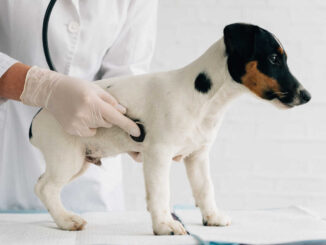
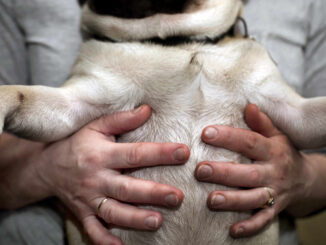

Be the first to comment